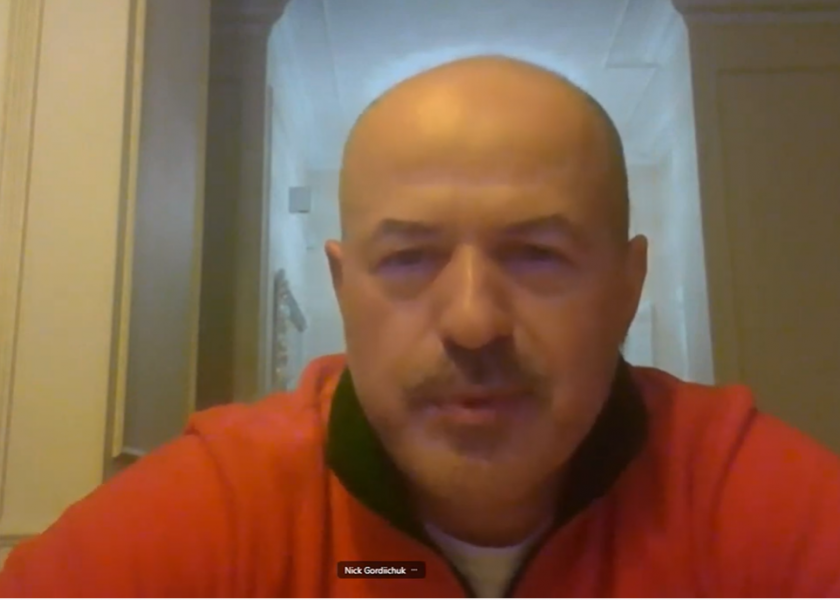Straight from Ukraine: Farmers Share Planting Updates, Concerns and More

Even if the war in Ukraine stopped today, Nick Gordiichuk says he has no idea when farmers would be able to get into fields and plant crops.
It could take months – and not because farmers don’t have fertilizer or fuel, though neither is readily available.
“We have no access,” he told AgDay Host, Clinton Griffiths, on Thursday.
“You can hear the shelling, you see the missiles and some tractors can get on the mines, which are in the field. It’s a dangerous situation,” Gordiichuk explained. “We find mines in the field or old rockets that didn’t explode. We will have to wait and get special help to clear the fields after the war.”
While He Waits
As the war grinds on, Gordiichuk does what he can on his family’s 600-hectare (1,482 acres) farm, where they grow winter wheat, seed potatoes, table potatoes, maize, and soybeans.
Most days, it isn’t much.
“We heard the Russians move to the East today,” he tells Griffiths, while sitting at a table in his family’s apartment in Kyiv, the capital of Ukraine. “I went to the farm and was grading and packing potatoes.”
But Gordiichuk has little to no help. Many people have fled the area. He estimates 3 million people in Kyiv and around the city have left the country, escaping to Poland and Hungary.
Another 7 million, he says, have moved from Russian-occupied areas to western Ukraine. That’s where Gordiichuk moved his wife and daughters after the war started on Feb. 24.
“Now my family is safe there, and I came back,” he says.
Griffith's interview with Gordiichuk is available here:
Farmers Stay Put
Yevhenii Tkachenko, an agriculture industry representative in Ukraine, told AgriTalk Host, Chip Flory, a similar story on Thursday.
He says farmers he knows are staying put in Ukraine. However, they are keeping their money in cash in case they need to leave quickly, like millions of others already have.
“They don’t know how badly the war will be, so they keep the money. They might (have to) move to Europe or America or other countries,” Tkachenko says.
Still, he says most farmers he knows are staying home to watch over their land and property. Some are fighting the Russians. More are helping members of the Ukrainian army, buying medicine and supplies.
Crippled Crop Production
Flory asked Tkachenko how many acres of wheat he expects farmers there to plant this season. Preparation is normally underway by now.
Tkachenko calculates farmers in Ukraine are on track to plant 7 million hectares of wheat – roughly 17.3 million acres – this spring.
That's about half of 2021 levels, according to Agriculture Minister Roman Leshchenko. A March 22 Reuters article quotes him as saying 15 million hectares of wheat had been expected to be planted this spring, prior to the Russian invasion.
Gordiichuk says he has heard an estimate that roughly 25% of Ukraine’s total acreage will be planted this year.
“But some farmers are not thinking about planting, because we don't know where we will sell our crops,” he says. “At the moment, all the seaports are blocked by Russians.”
Family, Friends, Fellow Countrymen
Growing and selling crops are not the only things on Gordiichuk's mind, as he wraps up the conversation with Griffiths.
His thoughts and comments turn to his family and the citizens of Ukraine.
“Russia is bombing civilians,” he says, estimating 150 children died last month, casualties of the war.
“This generation of the children will never be like they were before the war,” he says. “They are scared when they hear any sound, like a plane flying above their head.
“This is unbelievable to see in the 21st century,” he adds. “So we are also very thankful to the countries who are helping us and to the help we are getting from the United States and EU. I appreciate you keeping Ukraine in your thoughts and prayers.”
Watch the AgriTalk discussion here:







